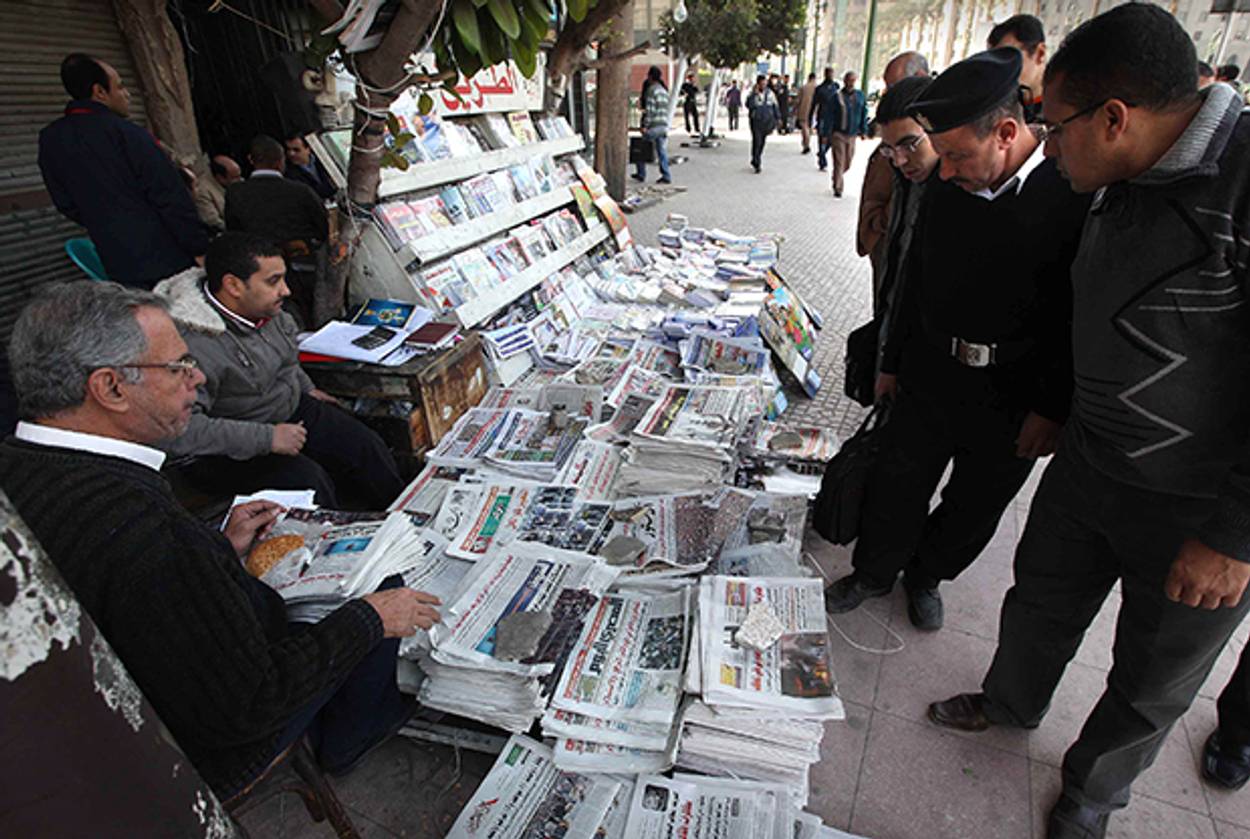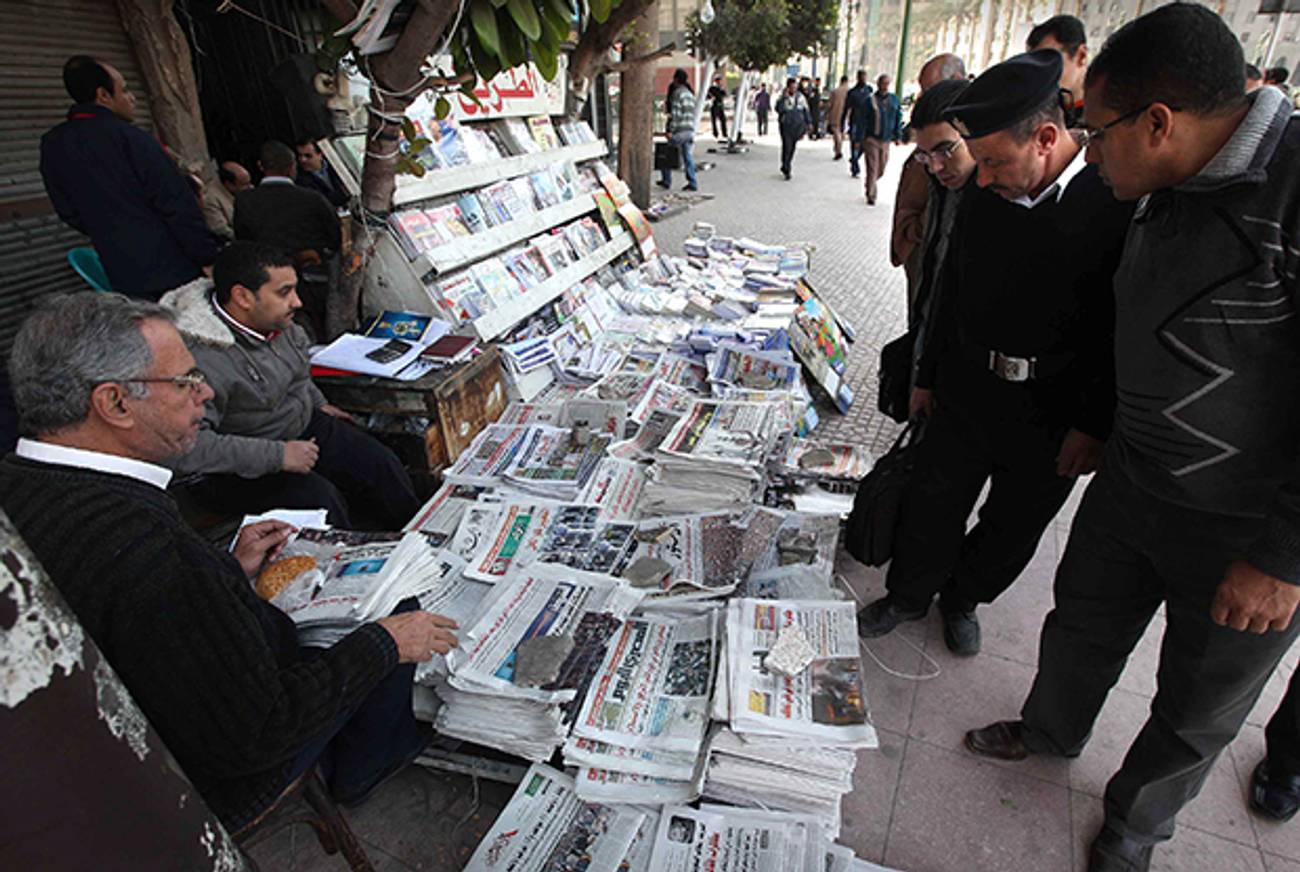If You Want To Find Support for Israel, Read the Newspapers—in Cairo
Arab frustration at Hamas has exposed changing attitudes toward Israel




Historically, Arab states have banded together in support of the Palestinians when fighting with Israel erupted: Any mention of Israel typically drew accusations of IDF gross misconduct and dramatic statements of solidarity with the Palestinian people. This has not been the case in the latest round of fighting. Egypt’s stance specifically has changed remarkably, combining implicit support for Israel’s military operation in Gaza with harsh criticisms of Hamas.
Egyptian Foreign Minister, Sameh Shoukri, went so far as to blame Hamas for Palestinian deaths: “Had Hamas accepted the Egyptian proposal, it could have saved the lives of at least 40 Palestinians,” as reported by Egyptian state news agency MENA.
Numerous Egyptian media reports have also expressed explicit support for Israel’s actions. Azza Sami of the Egyptian newspaper Al-Ahram wrote, “Thank you Netanyahu and may God give us more [people] like you to destroy Hamas!”
This is perhaps surprising to many. Israel’s right-wing supporters for years have portrayed Israel as a lone beacon of democracy surrounded by implacable enemies—something that is now more questionable than in the past. At the same time, Egypt’s open confrontation with Hamas lends credence to Israel’s assertions that Hamas is primarily a terrorist group—a view that is sometimes challenged by those who like to paint Hamas as a provider of social services to the Gazan population: Recent events have exposed how billions of dollars of financial aid and tons of cement earmarked for construction projects have been used by Hamas to develop a complex tunnel network that serves its terrorist objectives, instead of building schools and hospitals.
Israel’s actions are cited as being responsible for exacerbating the hostility of Arab states, but Operation Protective Edge has proved that the opposite can also be true. Israel’s actions against Hamas have brought to the fore relations that were previously covert. Amos Gilad, director of the Israeli Defense Ministry’s policy and political-military relations department recently admitted that,
“Everything is underground, nothing is public. But our security cooperation with Egypt and the Gulf states is unique. This is the best period of security and diplomatic relations with the Arabs.”
What’s behind these seemingly revolutionary changes in Arab attitudes towards Israel? Recent years, and even months, have seen dramatic changes in the Middle East. The Sunni vs. Shia conflict has engulfed the Muslim world, and plunged key Arab states into turmoil. Forging strong alliances with countries who share common enemies is the linchpin of global strategy in every region of the world—and contrary to assumptions on both the right and the left, the Middle East is no exception.
Hamas, the Palestinian arm of the Muslim Brotherhood in Egypt, is a prime example of how having common enemies can overcome other disagreements and rivalries. A report compiled by Khaled Abu Toameh for the Gatestone Institute noted that,
“Sisi’s Egypt has not forgiven Hamas for its alliance with Muslim Brotherhood and its involvement in terrorist attacks against Egyptian civilians and soldiers over the past year.”
With the regional powers allied against Hamas, U.S. and European influence is significantly reduced compared to previous conflicts. As former Israeli Ambassador to the U.S. Michael Oren noted, the Obama administration has close ties with Qatar and Turkey, “who are not on the best terms with Egypt right now”: After supporting the Muslim Brotherhood and denouncing al-Sisi’s coup in Egypt, neither Obama or Kerry has any particular influence with Egypt either. As a result, America is more of a spectator than a player in current events, while the real decisions are made in Jerusalem and Cairo.
Previous: Are Israel’s Attacks on Gaza Proportional?
Related: Some Concrete Facts About Hamas
Myer Freimann is a Master’s candidate in International Affairs at Columbia University’s School of International and Public Affairs and previously completed a BA in Political Science at Columbia. Follow him on Twitter at @myerlf.